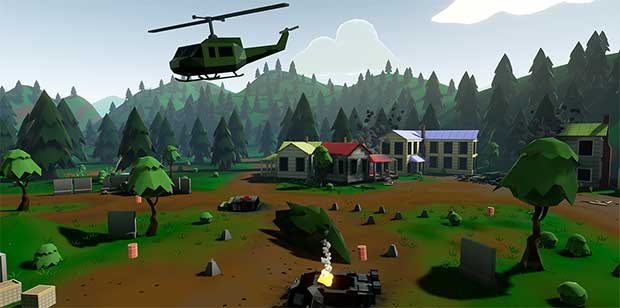Dean Hall on VR development: "There's no money in it"
Out Of Money
Dean "Rocket" Hall, the force behind DayZ and more recently his own studio, RocketWerkz, has made some fairly strong comments about the perils of VR development, the hostility of the tech's community, and his belief that profitability is extremely unrealistic for games developed for the host of new goggles. His own studio, he says, is unlikely to develop for VR again.
2016's tentative attempts to make VR finally into a real thing have certainly gone further than all the very many previously aborted efforts, but none has yet seen the sorts of mainstream success necessary for it to become something that would maintain the long-term interests of the major publishers, and in turn, attract the sorts of money needed to see continued game development. (All rather handily predicted for you in June of 2015.) Mammoth entry prices, a lack of big ticket games, and the spreading micro-thin of a small potential market across rival platforms, have all so far ensured it has remained a niche interest, with small, indie releases at the fore. And if Hall's experiences can be reasonably extrapolated across for other developers (as he suggests they can), that isn't going to change any time soon.
Hall's main bone of contention appears to be the recent community response to platform exclusivity by SUPERHOT Team (and a brief flirtation with the idea of restricting game modes to particular processors from Vertigo Games' Arizona Sunshine), where abuse has been targeted at devs for having the temerity to opt for platform exclusivity in return for funding from said platform. As he explains in some detail, without such subsidising, studios simply wouldn't be able to make VR games at all, with costs so high and returns so inevitably small.
"There is no money in it. I don't mean "money to go buy a Ferrari". I mean "money to make payroll". People talk about developers who have taken Oculus/Facebook/Intel money like they've sold out and gone off to buy an island somewhere. The reality is these developers made these deals because it is the only way their games could come out."
Rocketwerkz's own game, Out of Ammo, was made without platform subsidising, but exclusively for HTC Vive. The decision to make it for just one VR headset, he says, was purely pragmatic. "They are very different and it is more expensive and difficult to support the different headsets." (Valve doesn't offer subsidies for Vive development, but instead offer various forms of support, few of which are practical claims Hall.) And he goes on to point out that even if money is taken, it's not life-changing money, and they rejected the idea after consideration because the amounts weren't significant enough, and wouldn't have driven their game into profitability.
"From our standpoint, Out of Ammo has exceeded our sales predictions and achieved our internal objectives. However, it has been very unprofitable. It is extremely unlikely that it will ever be profitable. We are comfortable with this, and approached it as such. We expected to lose money and we had the funding internally to handle this. Consider then that Out of Ammo has sold unusually well compared to many other VR games."
It's certainly significant that a developer with the reach and popularity of Hall can't turn a profit even with a relatively successful VR game, and he suggests that while developers aren't acknowledging it publicly, they are discussing it privately. (Obviously a claim we can't verify.) And he concludes that he doesn't see Rocketwerkz trying the medium again.
"Honestly, I don't think I want to make any more VR games. Our staff who work on VR games all want to rotate off after their work is done. Privately, developers have been talking about this but nobody seems to feel comfortable talking about it publicly - which I think will ultimately be bad."
It will be interesting to see if the outlier in the VR space, Sony's Playstation VR, can be the platform to make a difference. A more realistic entry price (albeit still more than the cost of a new PS4 on its own), plus a huge potential user base already in place, all with tech guaranteed to work with it, and a far more established subsidising model for developers, could help struggle over the many hurdles Hall lists. Whether there's actually a broad audience who wants to play games this way remains the biggest obstacle, of course.

